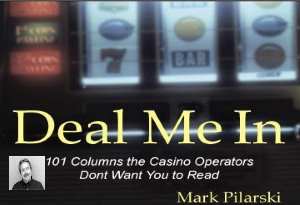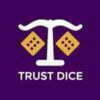If card counters have a mathematical edge against the casino, isn’t it impossible for them to lose? I guess my question is, as long as a player has that edge, they would always win, right? David D.
Yes, but you could go broke first. “Huh?”
Let’s begin this exercise by flipping a coin and betting a buck a pop. But first, I am going to generously give you the same mathematical edge the best-of-the-best blackjack counters have over the game, two percent. So, David, every time you win, you will be paid one dollar and two pennies. Every time you lose, all you have to give me is a buck.
Theoretically, as your question suggests, you should win because flipping a coin is a 50-50 proposition, and I’m paying you more for a win ($1.02) than you are losing for a loss ($1). So after 200 flips, you should, in theory, win 100 flips and lose 100 flips and come out ahead by 200 pennies.
Now start flipping. I’m waiting, come on, hurry up.
Hmmmmm, did you happen to notice something peculiar after those 200 flips? My guess is it didn’t exactly work out that we both won 100 times, allowing you to profit by those two dollars. Possibly you lost, and lost a lot.
You see, David, your edge is a long-term mathematical fact, but in the short run, anything can and often does happen; accordingly, any given gambling session must be considered an exercise in the “short run.”
Your gambling timeline of 200 flips is far too short for the law of averages to fully shake itself awake, and for you to always win and show a two-dollar profit, you would need to view a substantial number of flips, enough flips to give you carpal tunnel syndrome, and more than you will ever make in a single session.
Now let’s discuss that “broke first” poke I gave you in the first sentence.
We’re going to flip a coin again with the same conditions as above. But this time, you only have a $50 bankroll and Yours Truly has what most casinos have, pretty much an unlimited war chest.
These would be similar to the conditions that most casino patrons play under, that being a small bankroll (yours) versus Fort Knox. You can get wiped out even with a two percent edge, simply because your $50 bankroll might not be able to sustain the fluctuations of probability inherent in a coin flip, or for that matter, a couple hundred hands of blackjack.
You just don’t have enough money to weather the bad streaks that will inevitably come your way. Sure, David, you might have the edge, along with winning streaks, but never forget that edge is only mathematical. Bad luck happens, and can hang on longer than seems reasonable, sometimes to where you just plain run out of capital.
In real world casino gambling, the house with the unlimited bankroll, against your measly $50, is the entity with real edge.
Every time I play slot machines, it seems I get ahead a decent amount, and then I give it all back to the casino chasing jackpots. Any solutions? Pauline B.
Here’s a simple solution, Pauline: Don’t chase jackpots. Instead, how about being satisfied with modest winnings. What you need to understand is that over time small winnings can add up to sizeable winnings, which gives you an opportunity to take a whack at the casino more often.
What you’re caught up in is called—CHURN. You keep betting your winning credits. You recycle (churn) your money back through the cybernetic one-armed bandit until you either tap out, or hit “the big one,” and the odds of hitting “the big one” can be millions and millions to one.
Gambling Wisdom of the Week: “You never bet enough on a winning horse.” –Old Irish Mackinac proverb




















